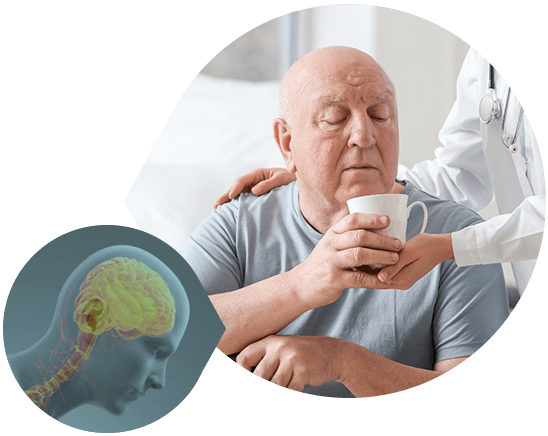
Our exercise physiologists offer personalised, evidence-based exercise programs to help improve motor function, coordination, sensory processing, and overall brain health.
Exercise physiology explores how different body systems, like the cardiovascular, respiratory, and muscular systems, respond to exercise, focusing on both immediate effects and long-term adaptations.
Exercise physiologists use this understanding to help people harness the power of exercise to improve their health.
When it comes to neurological disorders, exercise physiologists may help people:

Cardiovascular health is closely linked to brain function. It helps create a virtuous cycle, which can benefit people with neurological disorders.
Regular aerobic exercise
Improves blood flow to the brain
Delivers essential oxygen and nutrients
Supports neuroplasticity – the brain’s ability to form new connections
Helps the brain adapt and recover after injury or disease
Our exercise physiologists design programs to boost cardiovascular fitness, enhance cognitive function, and support overall brain health. Programs are individualised but may incorporate activities like:
Fatigue is a common symptom of many neurological conditions, including multiple sclerosis, Parkinson’s disease, and stroke recovery.
While it may seem counterintuitive, regular, structured exercise can actually reduce fatigue and improve energy levels over time.
When developing treatment plans, exercise physiologists carefully balance exercise intensity and duration to help you build endurance without overwhelming your nervous system.


Neurological conditions can disrupt the brain’s ability to coordinate movements and plan complex tasks. This can affect everything from walking to fine motor skills like buttoning a shirt or tying shoelaces.
At Neurofit, our exercise physiologists use targeted movement-based therapies to strengthen the pathways involved in motor planning and coordination. This might include:
Neurological disorders often affect proprioception – the sense of body position and movement. This can lead to unsteady movement, poor posture, and a higher risk of falls.
Our exercise physiologists use sensory-based exercises to enhance proprioception, helping clients develop better body awareness and spatial orientation.
This might include exercises that challenge balance, weight shifting, and muscle control, reinforcing the brain’s ability to process sensory information accurately. Over time, this can lead to more confident, controlled movements.

Neurological disorders can also take a significant toll on mental health. Regular physical activity has been shown to reduce anxiety, depression, and stress, while also enhancing mood and self-esteem.
Our exercise physiologists create supportive, engaging exercise plans that not only improve physical function but also boost mental resilience. This holistic approach can be particularly valuable for individuals facing long-term neurological challenges.
Neurological disorders can also take a significant toll on mental health. Regular physical activity has been shown to reduce anxiety, depression, and stress, while also enhancing mood and self-esteem.
Our exercise physiologists create supportive, engaging exercise plans that not only improve physical function but also boost mental resilience. This holistic approach can be particularly valuable for individuals facing long-term neurological challenges.
Exercise isn’t just about recovery – it’s also a powerful tool for disease prevention. Regular physical activity can help slow the progression of certain neurological conditions, reduce the risk of future brain injury, and promote long-term brain health.
The exercise physiology team at Neurofit Brain Centre aims to promote both physical and cognitive resilience by incorporating a variety of strength, cardiovascular, and neuromuscular exercises.
Neurofit Brain Centre’s highly regarded exercise physiologist is Chun Man (Kelvin) Choi.
Qualified in both physiotherapy and exercise physiology, Kelvin is also trilingual, speaking English, Cantonese and Mandarin!
If you or a loved one is living with a neurological disorder, please book an assessment.
